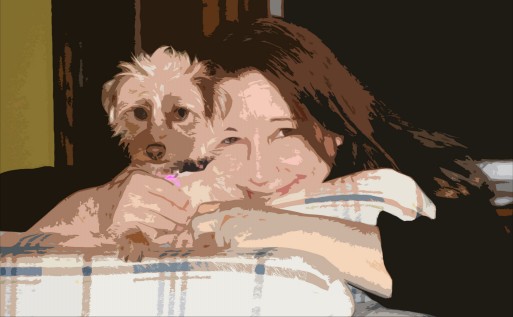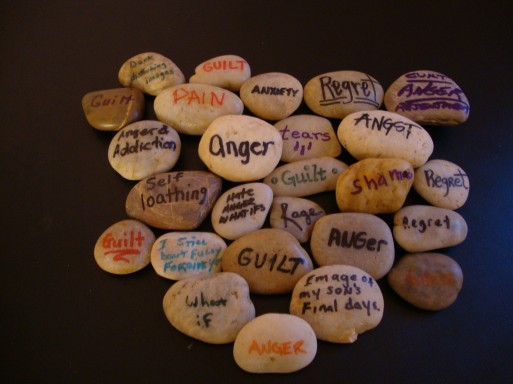Today, SevenPonds speaks with Susan Celentano of Beyond Surviving. Susan has been practicing psychotherapy in the Los Angeles Area for over 20 years, where she works as a therapist for those grieving the suicide of a loved one. Through her counseling work, Susan hopes to create the opportunity for a stronger, more meaningful life for those grieving the unexpected loss of a loved one.
MaryFrances: What is your history with bereavement counseling?
Susan: I’ve been a licensed marriage and family therapist since 1990. After I suffered a profound loss in my personal life, the focus of my practice gradually shifted from general psychotherapy to bereavement therapy – particularly suicide bereavement.
MaryFrances: What does the counseling entail?
Susan: I do a few different things. First, I facilitate Survivors After Suicide support groups. Second, I have a grief and loss private practice. I do deal with general loss issues, but most of my clients have lost someone to death, particularly to an unexpected, sudden death. The grief [that ensues] is layered, it’s complex. Often, contradictory feelings are involved when there’s a suicide loss; it’s a complicated bereavement. Lastly, I facilitate creative workshops, using psychodrama and expressive writing, as part of the program I developed, Beyond Surviving.
MaryFrances: You speak of loss on your website as something that we should embrace because it has the potential to make us stronger. Could you explain more of this philosophy?
Susan: Certainly. Meeting the challenges of grief can result in the individual living an enhanced, more meaningful life. In early grief, it’s basically putting one foot in front of the other. It’s surviving. It’s staying alive. I created the Beyond Surviving program for people who wanted to be able to engage with life again after their loss. These are people who’ve found that they’ve been able to survive their loss, they’ve stayed alive – but they wanted more. They wanted to live life, not just live. And they reached a place – and this is crucial – where they felt they deserved a life of meaning and purpose. There’s opportunity in profound loss and grief, to find something meaningful — to experience joy, to thrive, even as one carries great sorrow. The goal is not to get over grief, but to learn how to carry it.
“There’s opportunity in profound loss and grief, to find something meaningful — to experience joy, to thrive, even as one carries great sorrow. The goal is not to get over grief, but to learn how to carry it.”
MaryFrances: You mention using films as a tool for healing. How do they help the process?
Susan: I use several methods [of healing] in my work, in addition to traditional talk therapy and support groups. Drama and cinematherapy can help survivors navigate the path of grief. There’s no roadmap for grief, so fictional characters can provide role models for what works and what doesn’t; for what’s adaptive and what’s destructive, in terms of moving through grief — conflicts between family members, anger, confusion, helplessness, guilt and all the emotions we experience when grieving. Sometimes they do it gracefully and sometimes they do it clumsily. But the point is that they do it. And they provide a seed of hope for the survivor, who maybe isn’t quite ready to go out and join a support group and start talking about their grief openly. But if they can connect with a character in a movie, that’s hope for them, plus they may feel less alone, perhaps more courageous in facing their grief. Two of the films I use frequently are Ordinary People and A River Runs Through It. Both have powerful healing messages.
MaryFrances: How has your personal relationship with death and dying altered through your experiences with clients?
Susan: Well, it’s definitely changed. I’ve become much more able and willing to look at death and dying directly. When you work with sudden death all of the time, you start to appreciate what you do have. You develop a sense of gratitude; you take advantage of opportunities rather than wasting time.
“When you work with sudden death all of the time, you start to appreciate what you do have. You develop a sense of gratitude; you take advantage of opportunities rather than wasting time.”
I’ve also learned the importance of being able to shift perspective. In grief and loss one of the greatest challenges is to be able to shift your perspective, for example, from guilt to regret, from despair to forgiveness. So it’s the ability to see opportunity in situations rather than just view them in black and white. Appreciating complexity and nuance, a greater depth of experience, developing an unconditional acceptance of others – and myself – and being able to recognize what’s really important, that’s just part of the impact my work has had on me.
Susan’s Three Tips for Those Recovering from the Suicide of a Loved One:
1) Find someone who will listen, whether that’s a family member, therapist or support group.
2) Tell your story. Tell it over and over again until you can accept its reality.
3) Nurture yourself; develop a non-judgmental, compassionate attitude toward yourself.
MaryFrances: What’s the best way to memorialize a suicide victim? How can we cultivate a healthy relationship with our memory of them?
Susan: Engage in something that’s meaningful, something that meant something to that individual. Also, continue to honor and memorialize the person who died. With suicide, there’s a risk that the person who died can come to be defined by their death – that the person was “a suicide.” This is like a second death. It’s up to the survivor to make sure that that’s not the legacy of the person who died, to ensure people remember who that person was, separate from the manner of their death.
There are many ways to honor and memorialize someone; social media has really taken off in terms of creating a memorial site or page on Facebook, for example. There’s always memorial or scholarship funds, but if you don’t need money to memorialize someone, it just takes the desire to keep their memory alive – an annual gathering to share photographs and memories, for example, planting a tree, or most simply and perhaps most importantly, just continuing to say the name of the person who died, and talk about them to future generations. To make sure they’re not defined by that final event. People often say there’s a reason for death and everything that happens. But for me, it’s not that they died because of something – but, rather, because they died, I will live a different way. I will live a better life. That’s a real tribute.
MaryFrances: Thanks for taking time to speak with us today, Susan.
Susan: Thank you.
Read More SevenPonds Interviews:
- What is Death Midwifery? An Interview with Cassandra Yonder
- What Is The Centre for Living with Dying Program? An Interview with Janet Childs
- What is Art Therapy? An Interview with Constance Hunt

 What is Beyond Surviving? An Interview with Susan Celentano, LMFT
What is Beyond Surviving? An Interview with Susan Celentano, LMFT




 The Spiritual Symbolism of Cardinals
The Spiritual Symbolism of Cardinals

 Flawed Kidney Function Test Discriminated Against Black Patients
Flawed Kidney Function Test Discriminated Against Black Patients














